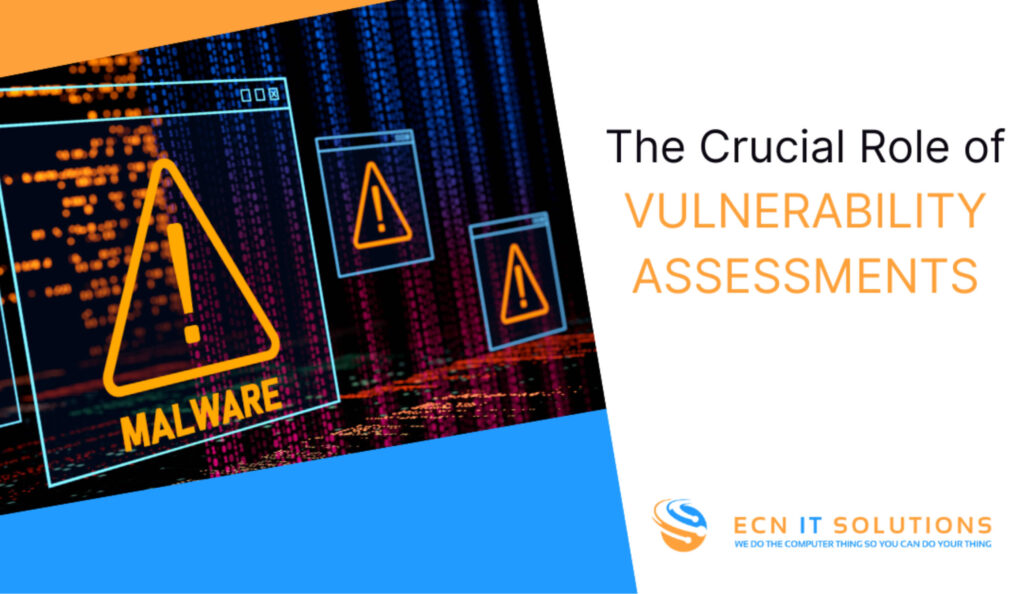Cyber threats persist for business owners, with hackers continuously evolving to exploit system weaknesses.
For businesses of all sizes, proactive cybersecurity is a must. Key to this is frequent vulnerability assessments, systematically identifying and prioritizing IT infrastructure weaknesses ripe for exploitation.
While some may hesitate due to cost concerns, these assessments are indispensable for every business, irrespective of size. Neglecting them can be a costly mistake, especially given the record 29,000 new IT vulnerabilities discovered in 2023.
In this piece, we delve into the pivotal role of vulnerability assessments, their perks, and how they fortify your cybersecurity stance. We’ll also dissect the consequences of overlooking them.
Why Vulnerability Assessments Matter
The online landscape is fraught with dangers, as cybercriminals perpetually hunt for vulnerabilities to infiltrate. Here’s why regular vulnerability assessments are indispensable:
- Spotting Hidden Weaknesses: Many vulnerabilities lurk within intricate IT setups. Routine assessments uncover these before attackers exploit them.
- Staying Ahead of Threats: With new vulnerabilities emerging constantly, regular assessments ensure your defenses are current and resilient.
- Meeting Compliance Needs: Various industries mandate vulnerability checks to maintain data security and privacy compliance.
- Proactive vs. Reactive: Identifying vulnerabilities proactively allows swift remediation, slashing the risk of costly breaches. A reactive approach spells financial losses and operational disruptions.
The Price of Skipping Assessments
While some may see vulnerability assessments as an unnecessary expense, the fallout from ignoring them can be severe:
Data Breaches
Unpatched vulnerabilities render systems vulnerable, inviting cyberattacks and potential data theft.
Financial Hits
Data breaches incur hefty fines, legal entanglements, and substantial recovery costs. Business downtime amplifies the financial toll.
The average cost of a data breach is a staggering $4.45 million, a figure that keeps climbing.
Reputational Blow
A breach tarnishes a company’s image, eroding trust and deterring potential clients.
Competitive Setback
Cyberattacks stifle innovation and competitiveness, hampering growth prospects.
The Advantages of Routine Checks
Regular vulnerability assessments offer a slew of benefits:
- Enhanced Security: Pinpointing and addressing vulnerabilities shrink the attack surface.
- Regulatory Compliance: Compliance with industry standards and data privacy laws is ensured.
- Peace of Mind: Assured network security frees focus for core business activities.
- Cost Mitigation: Proactive vulnerability management thwarts costly breaches.
- Informed Decisions: Insights from assessments inform strategic security investments.
The Vulnerability Assessment Process
A typical assessment involves:
- Planning: Define the assessment scope.
- Discovery: Scan IT infrastructure for vulnerabilities.
- Prioritization: Rank vulnerabilities by severity.
- Remediation: Develop and execute a plan, followed by detailed reporting.
Secure Your Future
Vulnerability assessments aren’t a one-time fix; they’re an ongoing necessity to safeguard your business. Invest in them to ward off cyber threats and ensure continued success.
Schedule Your Assessment Today
When was your last vulnerability check? Regardless of your business size, we’re here to help. Our assessments pinpoint weaknesses and provide actionable solutions. Contact us now for better security.

